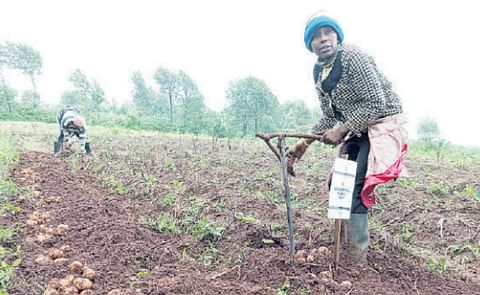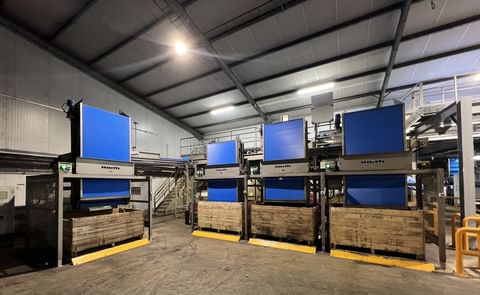“The timely availability of seed of well-adapted varieties will enhance the sustainability and economics of potato production in Mozambique,” notes CIP’s Maria Andrade, breeder and seed system specialist.
Mozambique released seven new potato varieties obtained from the breeding program and collection of the International Potato Center (or CIP for its Spanish acronym) as part of a food security and poverty alleviation effort. Mozambique currently imports some 2,000 tons of seed potato yearly, making local potato production an expensive venture, especially for small-scale farmers.

Potato cultivation Mozambique, Courtesy: CIP
“The timely availability of seed of well-adapted varieties will enhance the sustainability and economics of potato production in Mozambique,” notes CIP’s Maria Andrade, breeder and seed system specialist.
Potato production in Mozambique is increasing with nine out of the ten provinces growing the humble tuber that contains about half the daily adult requirement for vitamin C along with iron, potassium, and zinc.
The Government of Mozambique developed a national strategy aimed at reducing dependency on foreign potato supply by investing in potato research for development. CIP, with support from USAID, contributed to this program by providing and helping to develop seven potato clones with high field performance and favorable morphological and post-harvest traits, including taste. Three of the clones are part of the new generation of CIP material that is resistant to Late Blight (Phytophthora infestans), the most devastating crop disease in the world.
In recent years, Mozambique’s government has been prioritizing food security, and this is reflected in adaptation of agricultural regulation to fast track getting seeds to the field. For example, it used to take three years of paperwork to release a variety. In late 2010, the Ministry of Agriculture approved an addendum to simplify the process and make seeds available faster for end users. This has had reciprocal benefits to researchers as well.
“In most cases, only one variety is released at a time, so there is little possibility to speculate on the reasons why one variety may spread quickly and another one slowly. With the release of seven varieties at once, we have a very interesting opportunity to study uptake pathways. The seven varieties will be subject to the same institutional procedures and made available simultaneously to farmers and end-users. We’ll thus be able to collect and compare information on aspects such as farmers’ and consumer’s choice and other factors that can determine varietal success and the costs and benefits of production,” says Merideth Bonierbale, senior potato breeder at CIP.
Potato is the world’s third most important food crop after rice and wheat. In Mozambique, maize trumps the potato in crop area, but with rising food prices and droughts, the hardy and nutritious potato can play a vital role in times of need. Presently, more than half of global potato production comes from developing countries. CIP plays an important role providing resource-poor farmers in developing countries with a range of new technologies, including potato breeding material, designed to suit local conditions and meet changing needs.









